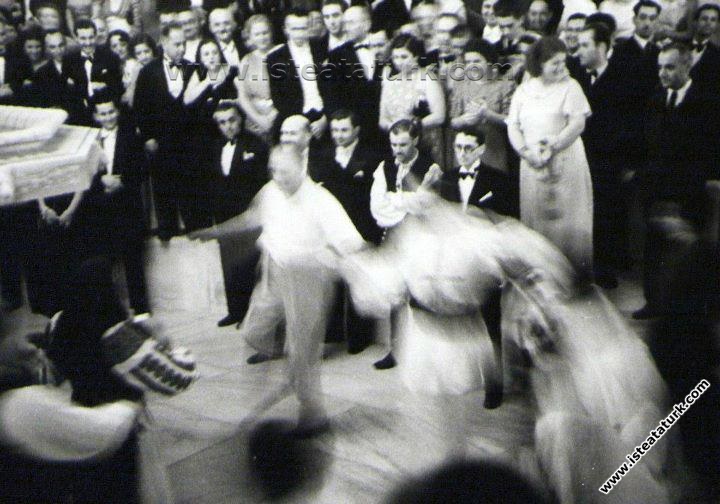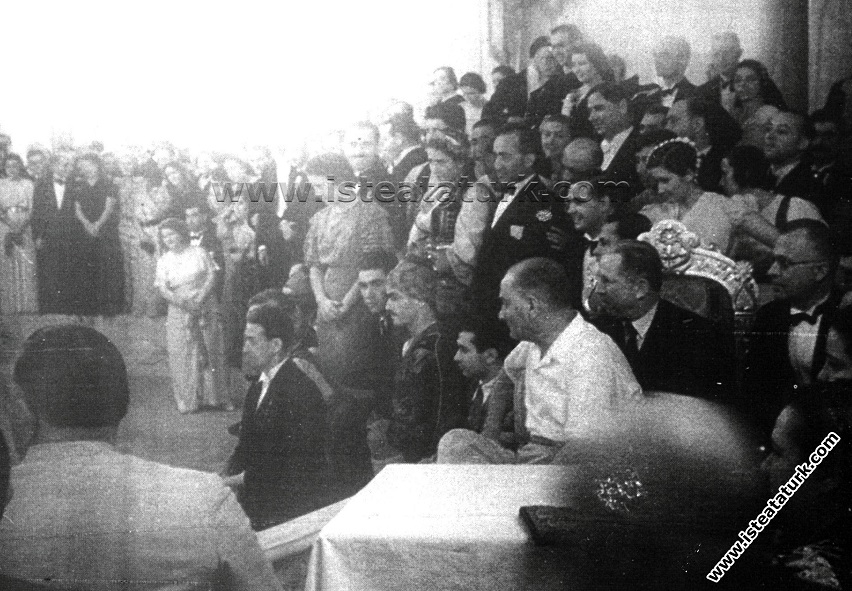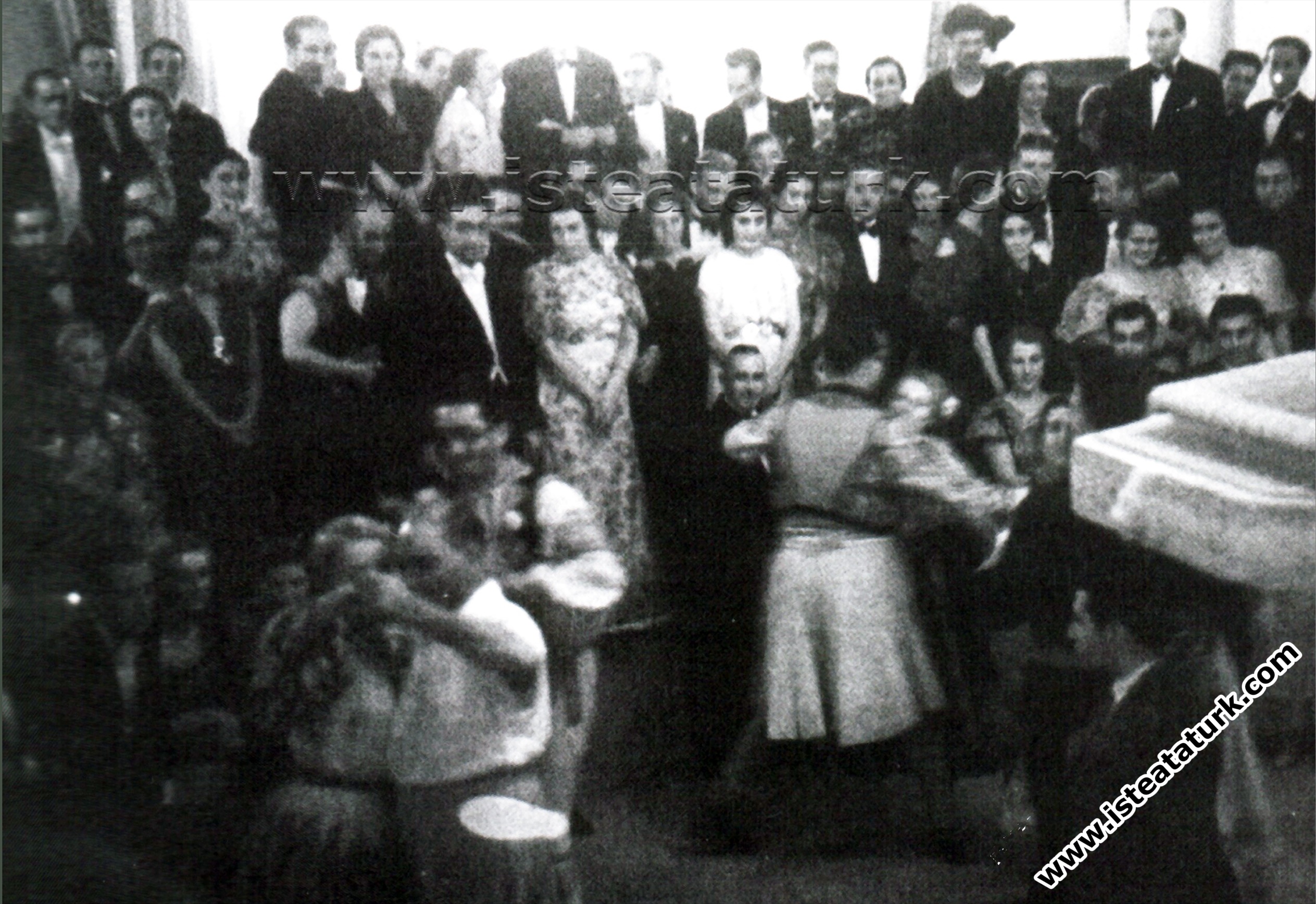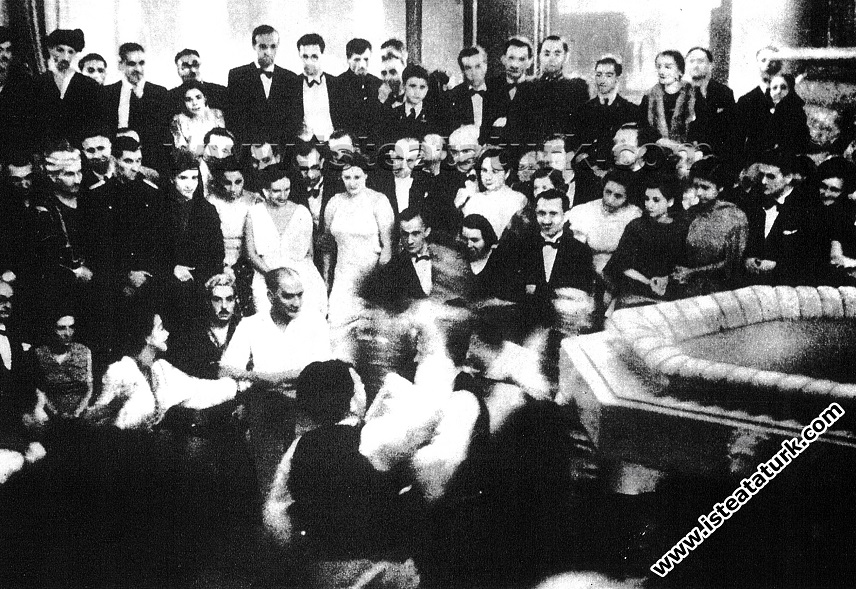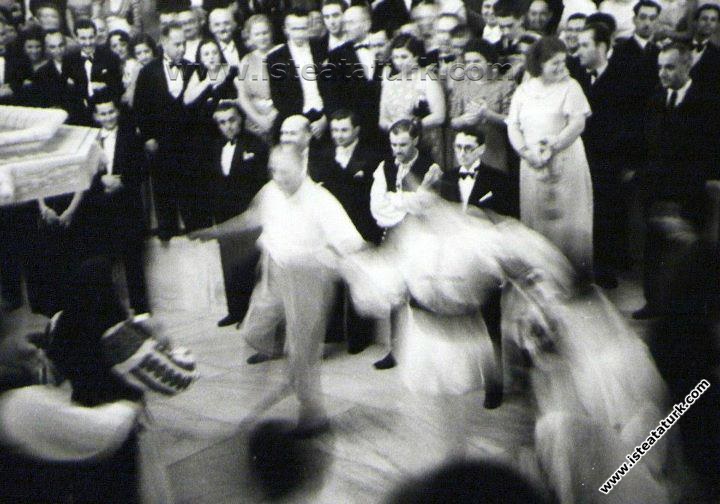
A Memoir About Atatürk and Music
Character Size
A Memoir About Atatürk and Music
A MEMORY ABOUT ATATURK AND MUSIC
From Mr. Cevad Memduh ALTAR
I returned from Germany in 1927 from education; I was appointed to the Theory [Theory] teacher of the Music Teachers' School in Cebeci. Almost every day, we were busy with the preparations for a new academic year. It was a beautiful day in autumn. Our Director, Zeki Üngör, said, “His Highness the Veteran wants to get to know young people returning from education from Europe, he will invite you soon, be ready.” It turns out that Hakimiyeti Milliye newspaper mentioned three students returning from the West from fine arts education in those days, and my name was among them. It was a Saturday, I'll never forget, around 5 pm a beige open car arrived; Zeki took me to the old Kuleli Mansion in Çankaya. I was trembling. I would see Gazi Mustafa Kemal; Mustafa Kemal, who saved the country and cast the enemy into the sea.
While I was a student in Germany, I watched the course and development of the War of Independence with excitement. On the day that Izmir was recaptured, we gathered at the Turkish Students' Association in Leipzig; we hugged and kissed each other, we walked together in the streets; We sent a congratulatory telegram to Gazi Mustafa Kemal. It was truly an unimaginable chance for me to be able to see him four years later.
In the mansion, we were all waiting for Gazi to come to the hall. It was 17:30. A sudden movement was seen in the adjutants playing billiards; Coming, they said, and they went to the corner at the end of the hall and turned in one direction. I was behind. The late Zeki Bey ran, kissed Gazi's hand and said, "Pasha, I brought the young man you ordered." I immediately moved on; he shook my hand and said, “Come on, are you the one who came back from Germany from education?” said. It was hard for me to even say yes; I remember being able to say something.
They brought a breakfast tray in front of Gazi; Pasha had breakfast; He asked me many questions about art and said “I am satisfied” to the answers he received. Then our Manager turned to Mr. Zeki: “Sir Zeki, let this young man prepare a music program for us tomorrow night and let's listen to it” he said. After a while we returned to Cebeci; I was still shaking.
How could I prepare a program for Gazi Mustafa Kemal? I didn't know which music or which pieces he liked. Moreover, I could not see in myself the courage to ask questions about what you are ordering.
I thought all night long. At that time, I was dealing not only with the history and aesthetics of music and fine arts, but also with its application; I played instruments such as the cello and the viola. I was particularly interested in chamber music in Germany; I have put a lot of effort into this genre of music literature. I could have prepared a viola program for Gazi with piano accompaniment. As a matter of fact, I prepared a program. Thus, I would have introduced a very little known musical instrument in our country at that time.
We worked all day with my late friend Sadri, the pianist of the Riyaseticumhur [Presidential] Orchestra. The program had reached maturity to be played at the mansion in the evening. I contented myself with putting some of the main works of viola literature into this half-hour programme. My purpose was to present mostly melodic parts of literature to Gazi Mustafa Kemal. Among the works I chose for him were Pietro Locatelli's aria, heavy melodies by Bach, Vivaldi and Jean Marie Lecleire.
We were at the mansion at 19.00. A large table was prepared in the inner hall. There were only a few guests in sight. After a while, Saffet Arıkan and Vasıf Çınar gentlemen also came. Gazi came last. He asked me questions about the program, the viola and the pieces to be played; He kindly offered to introduce me to the guests and said, “Friends! Now let's listen to the concert”, he said; Everyone was silent and began to listen where they were.
I tried to express Locatelli's aria in classical style as much as I could and as much as I could. Gazi was very close to us and was watching the concert standing up. The first piece was just finished, when a loud applause filled the hall. The ghazi came up to us, shook our hands, and rewarded us with a compliment we didn't deserve. It was impossible not to notice the interest and excitement on his face. At that moment, there was an event that I will never forget in my life. Mustafa Kemal hastily and loudly said to his guests, “Friends, this music cannot be listened to like this, let's listen to it inside, in the hall,” and he called the janitors of the mansion with his hand and ordered them to immediately carry the piano standing by the door to the hall. The piano, which lifted from its place with the lightness of a feather, was placed where Gazi indicated in the hall. Then Gazi turned to his guests entering the hall and said, “Friends,
It was impossible not to see that the situation had entered a completely different atmosphere than the one just before. This sudden decision of Gazi Mustafa Kemal gave the meeting a more serious character, the solemnity of a real concert could be felt in the hall. Our concert was over. I leave the degree of excitement I experienced to the discretion of my esteemed listeners.
Then, with his orders, I informed the audience about the viola and its literature, and finally, the table was seated. During the meal, I made a great effort to answer the questions that Ata asked me about music and literature. The unforgettable impression [impression] that that unforgettable night created on me was the great leader's great interest in the art of music. In fact, the concert programs that I prepared for the meetings held at the Marmara Mansion on Tuesdays, with the order they gave me that night, continued until the summer vacation; Gazi attended all these meetings, to which the diplomatic corps was also invited, and watched the concerts carefully.
Years later, I understood better that I first encountered it in 1927 in Çankaya, with the extraordinary images of the unique judgments that Gazi Mustafa Kemal gave time to time about music. Because in his speech at the Great Assembly of 1934, Ata said exactly as follows: “I know how you want the youth of the nation to be promoted in all fine arts. This is being done, however, it is Turkish music that needs to be taken away as soon as possible. Expressing national, subtle feelings and thoughts; it is necessary to collect high sayings, utterances, and to process them the day before, according to the general final music rules. However, at this level, Turkish National Music can rise and take its place in universal music. I wish the Ministry of Cultural Affairs to give it the attention it deserves and the public to help him in this”.
This on-site warning will have had the necessary effect in a short time that Ata gave the opening speech of the Grand National Assembly one year later. “…More effort will be given to raise our national music within modern technique this year!” said; and in his 1937 speech, he said: “…More effort and sacrifice would be appropriate in order for the State Conservatory, which was established in Ankara last year, to be able to rapidly deliver the technical staff we expect from him in music and on stage.”
The chronological development of Gazi Mustafa Kemal's extraordinary views on the maturation of National Music was duly completed with his words in 1938 and set the definitive path for our national music; As a matter of fact, Ata said exactly the following in his last statements: “…When music is mentioned, we mean a music that finds the expression of our high feelings. Today's Turks expect from music the service that other high and sensitive societies expect”.
Dear listeners;
I witnessed Ata's great interest in the art of music in 1927 right next to him. I saw that the efforts made since then were realized one by one in the beginning, and I was happy to serve this great principle. Over time, I understood much better that every word of Ata was not a coincidence, but the truth itself. Because polyphonic Contemporary Turkish Music, which had the opportunity to develop only with Atatürk's revolutions, was able to make the necessary move with the close interest and effort of the great Leader.
Today, I am sure that only by walking in Ata's path will successfully conclude the new moves that our music needs.
Source : www.cevadmemduhaltar.com
We would like to thank Ms. İnci Kut, daughter of Cevad Memduh ALTAR, for her support.
